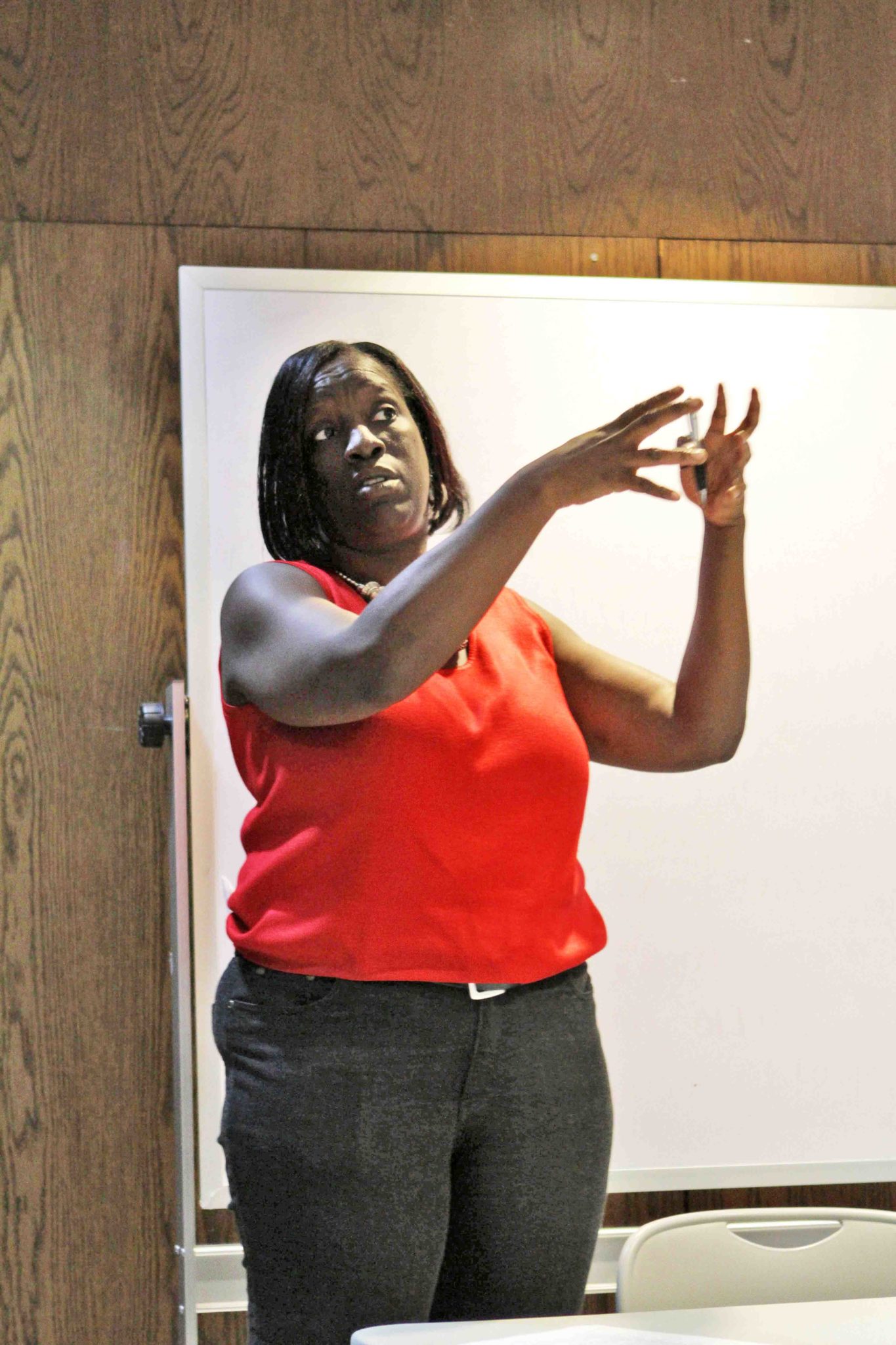
Yale Daily News
Yalies affiliated with the Franklin, Morse, Pauli Murray, Silliman, Stiles and Timothy Dwight residential colleges do not commonly identify with their surrounding, low-income neighborhood of Dixwell.
But members of these six constitute a sizable portion of the roughly 4,000 eligible voters in New Haven’s Ward 22 which extends behind Lake Place. In the hopes of bridging the long-standing gaps between Yalies and the city they call home for four years, Ward 22 Alder Jeanette Morrison has held open meals in each residential college dining hall of her district.
“I don’t see any differences in people,” said Morrison, who works as a social worker in the Department of Children and Families in addition to her role as alder. “For a system to be structured in a way that has a wall up between the [Yale-student] community and the rest of the community … I don’t like that.”
Morrison, who is in her seventh year representing Dixwell, has held the open meals since the beginning of her tenure on the Board of Alders. Most years, she does a round at each college every semester. But, if time constraints make the semesterly commitment implausible, she holds at least one full round each school year. This fall’s semester meals began last Friday evening with a dinner in Franklin and continued with a Monday lunch in Stiles and dinner in Pauli Murray.
At the meals, Morrison sits at a table for approximately an hour over a dining hall meal while students are welcome to come and go as they please, regardless of their college or ward affiliations. On average, approximately five students attend each meal.
Lorna Chitty ’20, a student in Stiles who works closely with Morrison as one of two co-chairs of the Ward 22 Democratic Town Committee, told the News there is a long-standing disconnect between Yale and New Haven.
“There is certainly an overt tension, if not oftentimes an antagonistic relationship between the two,” Chitty said. “One thing [Morrison] really wanted to change was the alder’s presence in the Yale community.”
At lunch on Monday, students discussed the perpetuation and cognitive power of physical divisions between Yale and New Haven. One attendee mentioned the idea of Popeyes, on Whalley Avenue, as a boundary to the New Haven that Yale students occupy. Morrison said that the systematic separation of town and gown works against both students and permanent residents alike.
According to Morrison, who was born and raised in New Haven, her continued passion for developing the relationship between the Elm City and Yale is a product of her own schooling experiences. After attending Hillhouse High School, the alder graduated from Morgan State University before going on to Boston University, where she earned a master’s degree in social work. Morrison told the News that she had to work extensively within the city of Boston and its surrounding neighborhoods in pursuit of her degree. In doing so, she learned the value of integrating the experiences of students and permanent residents.
Morrison also stressed that college students have different needs than their permanent-resident counterparts. Yalies’ housing and meals are largely accounted for, and they rarely need their elected representatives’ help in addressing facilities-related or logistical concerns, which is one of Morrison’s primary responsibilities to most of her non-Yale constituency. The unique status of students makes them constituents who have a responsibility to their greater communities, Morrison said.
“It’s important to keep in mind that there are hardworking organizers in New Haven who have been making a positive difference in the city for years,” Jordan Cozby ’20, president of the Yale College Democrats, said. “Yale students can bring resources, energy and ideas to the table, but we should recognize that [permanent residents of New Haven] typically know this community’s assets and needs better than we do.”
Managing the relationship between Yale and New Haven does not just operate on a student-by-student basis — Morrison acknowledged the balance she must strike in balancing town and gown needs. Specifically, Morrison highlighted the issue of Yale’s increasing development needs, which tend to compete with the city’s affordable housing measures.
But Morrison said she promotes student involvement in the city as a mode of community building based in the formation of meaningful relationships. She cited examples of students who have built relationships and connections with members of local communities to the benefit of all parties involved.
“The burden is on the Yale student,” Chitty said. “The Yale student is the medium through which you can get the immense and disproportionate amount of resources that Yale has.”
Old Campus and the residential colleges not in Ward 22 fall under the area of Ward 1, the city’s only majority-Yale district. Ward 1 is represented by Hacibey Catalbasoglu ’19.
Morrison is the President Pro Tempore of the Board of Alders and sits on the Finance and Legislation Committees.
Angela Xiao | angela.xiao@yale.edu







